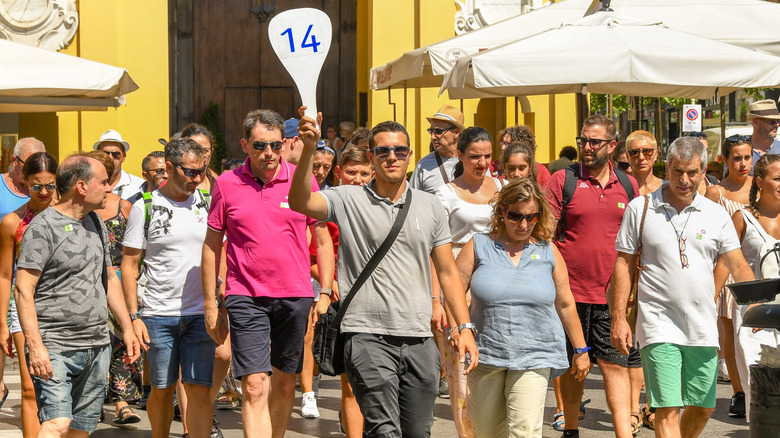Planning
Caitlyn Knuth
Travel is an opportunity to get out into the world and connect with new cultures, languages, landmarks, and experiences in exciting and memorable ways. Adventurers looking forward to expanding their horizons often do so by setting their travel sights across international borders. However, for all of the idyllic moments that come with a journey into a new country, there are just as many risks of being scammed along the way.
As important as it is to focus on the positive aspects of travel, it’s just as essential to be aware of what can go wrong to avoid detrimental and dangerous scenarios. According to a report by the BBC, Americans have fallen prey to travel scams resulting in financial losses exceeding $265,000 just in the first part of 2023 alone. The average annual financial loss to travel scams experienced by Americans in 2022 rang in at around $600,000. The numbers are certainly worrisome. Unfortunately, the scam risks can continue once travelers book excursions at their destination of choice. It’s not uncommon for tourists who travel internationally to fall into the hands of fake tour guides if they don’t recognize the warning signs.
Fake tour guides are unlicensed and savvy at convincing travelers they can offer them specialized sightseeing experiences. They often approach travelers on the streets claiming to know shortcuts to top stops in the area. While fake tour guides are notorious for overcharging travelers significantly for scam services, in the worst-case scenario, they can also lead them to dangerous destinations.
Tour guides should always be certified

Ceri Breeze/Shutterstock
Knowing how to differentiate an authentic tour guide from an impersonator is important. It keeps your money secure while traveling and invested in legitimate economic channels. It’s just as important when it comes to maintaining high standards of personal safety as a tourist in another country.
In many top travel destinations across the globe, tourism is a highly respected industry. There are strict requirements in place for guides who want to be able to offer tourists professional services. Training and certifications official tour guides must obtain to be recognized in their field are often established and regulated through the World Federation of Tour Guide Associations (WFTGA). For tourists, it’s important to note that any tour guide who has completed these stringent courses will have documentation ready to present upon request. Their status should also be clearly listed if they are a full WFTGA member. Additionally, travelers can look up what requirements they completed in their training ahead of time.
Even if you’ve confirmed a tour guide’s authenticity through their guide certifications, it’s always a good idea to check with your on-site hotel staff before signing up for a guided tour. Hospitality experts are typically very familiar with locals who may frequently pose as tour guides. They can point out signs you might be missing and even offer more authentic and safe options for your guided excursions.
Red flags to look out for before joining a tour

kudla/Shutterstock
There are telltale signs to note when you’re looking to avoid being scammed by a tour guide. First, always check that your tour guide is wearing an official badge. Certified guides are required to wear these and the color of the badge indicates their level of certification. Unfortunately, there are scammers out there who are skilled at creating false badges. However, they will likely remove it quickly. This is a good indication you’ve been duped.
Another red flag when it comes to tour guide scams is a guide who won’t directly name the tour company they work for. These individuals often reference a “cultural association” but won’t say where it’s located or what type of training they’ve completed. If a tour guide tells you they only accept cash, they’re likely attempting to scam you to avoid having to provide legitimate receipts for services rendered. Meanwhile, some tour guide scams to be aware of are very specific to certain settings. In places like the busy markets of Marrakech, it’s not uncommon for lost tourists to find a helpful passerby who assists them with directions. Upon arrival at their destination, these individuals demand compensation for their work as a “tour guide.”
A great tour guide can certainly make a positive impact on your travel experience. It’s important to know how to find them safely at your destination. Always check their credentials and ask plenty of questions before joining up with that next tour.

